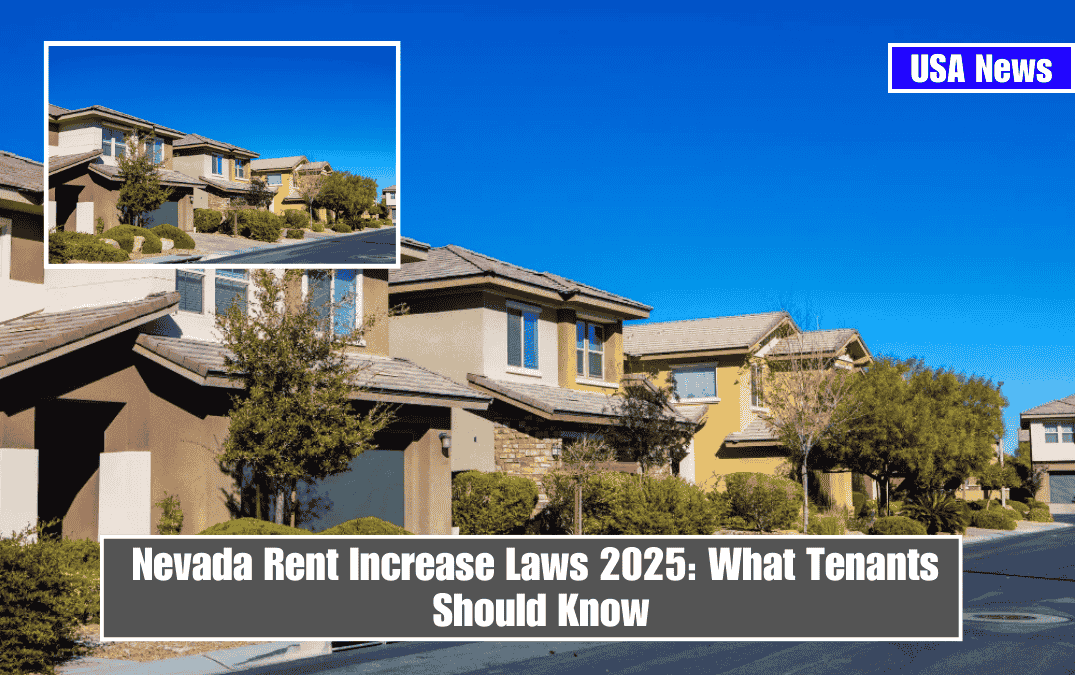Nevada rent increase laws in 2025 remain largely landlord-friendly, with minimal restrictions on how much landlords can raise rents. However, tenants should be aware of specific rules and recent legislative developments that may impact their rental agreements.
Key Points About Rent Increases in Nevada
No Statewide Rent Control
Nevada does not enforce statewide rent control laws, meaning landlords can increase rent without a cap, as long as they follow proper notice requirements. This applies to most properties, allowing landlords to adjust rents based on market conditions. However, certain local ordinances, such as in Reno, may impose limited controls (e.g., a 5% plus inflation cap for specific properties).
Notice Requirements
Landlords must provide written notice before increasing rent:
- Month-to-Month Tenancies: A 60-day notice is required.
- Shorter-Term Leases: For leases shorter than a month (e.g., week-to-week), a 30-day notice is needed.
- At-Will Tenants: A 45-day notice is required.
- Fixed-Term Leases: Rent cannot be increased during the lease term unless explicitly allowed in the agreement. Notice must be given before the lease ends if a rent increase is planned.
Legislative Updates
In 2025, Nevada introduced Assembly Bill 280, which includes tenant protections for vulnerable groups:
- Starting July 1, 2025, rent increases for tenants aged 62 or older or those relying on federal Social Security payments will be capped at 10% annually. This cap applies to single-family residences with no more than four units and excludes manufactured homes.
- Other proposed bills, such as AB 298 (statewide rent control for seniors and fixed-income tenants), are still under legislative review.
Illegal Rent Increases
While landlords have significant discretion in raising rents, certain practices are prohibited:
- Retaliatory Increases: Rent hikes in response to tenant complaints about unsafe conditions or discrimination are illegal.
- Discriminatory Increases: Landlords cannot raise rents based on race, religion, gender, disability status, or other protected categories under the Federal Fair Housing Act.
Challenges for Tenants
Tenants facing excessive or unfair rent increases have limited options due to the absence of statewide rent caps:
- Review Lease Agreements: Ensure the landlord adhered to notice requirements and lease terms.
- Negotiate: Open communication with landlords may lead to compromises.
- Legal Recourse: Tenants can challenge retaliatory or discriminatory increases by filing complaints with the Nevada Attorney General’s office or seeking legal assistance.
Practical Considerations
- Landlords cannot raise rents mid-lease unless explicitly allowed in the lease agreement.
- Tenants should document all communications and notices related to rent increases for potential disputes.
- Local laws may differ; tenants should check city-specific regulations for additional protections.
While Nevada generally favors landlords with no statewide limits on rent increases, tenants do have some protections through notice requirements and anti-retaliation laws. The introduction of AB 280 marks a step toward safeguarding vulnerable groups from excessive rent hikes starting mid-2025. Tenants should stay informed about legislative changes and consult legal resources if needed.
SOURCES:-
[1] https://citizenportal.ai/articles/2388303/Nevada/Nevada-enacts-rent-increase-cap-for-elderly-tenants-starting-July-2025
[2] https://karsaz-law.com/2025-legislative-session-tracker/
[3] https://www.sterlingkerrlaw.com/blog/2024/12/rent-increase-laws-in-nevada-how-much-is-too-much/
[4] https://www.hemlane.com/resources/nevada-rent-control-laws/
[5] https://www.steadily.com/blog/how-much-can-a-landlord-raise-rent-in-nevada









